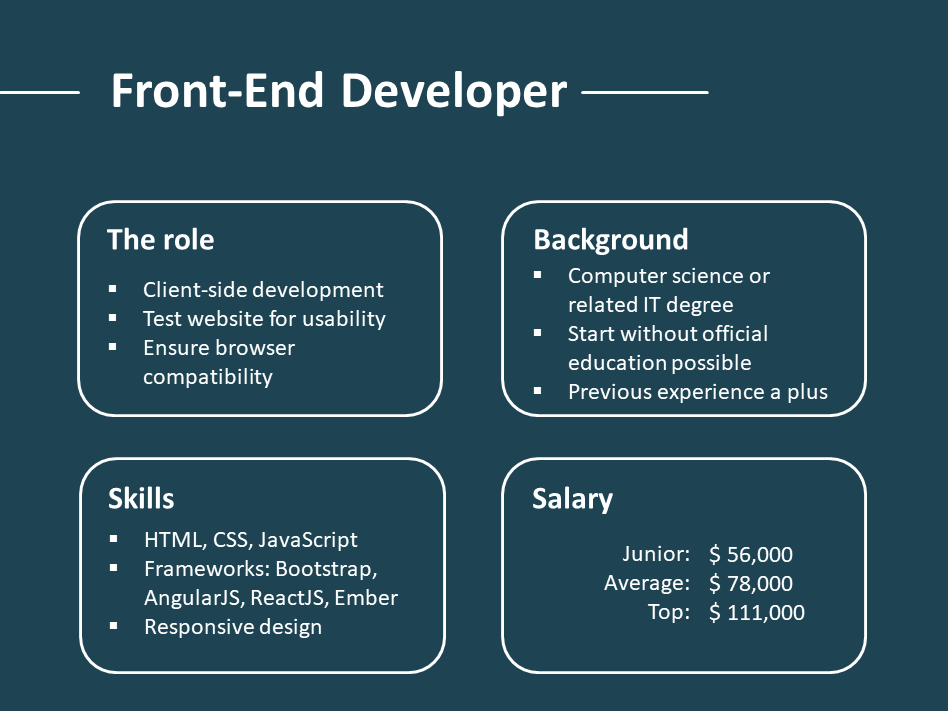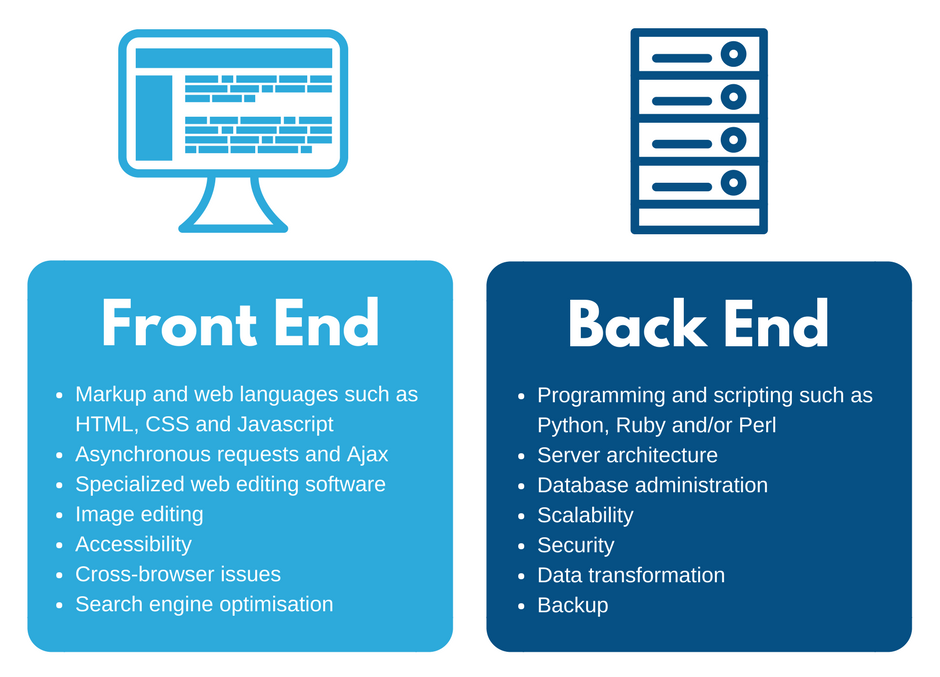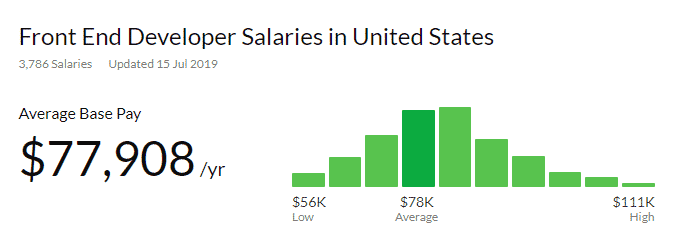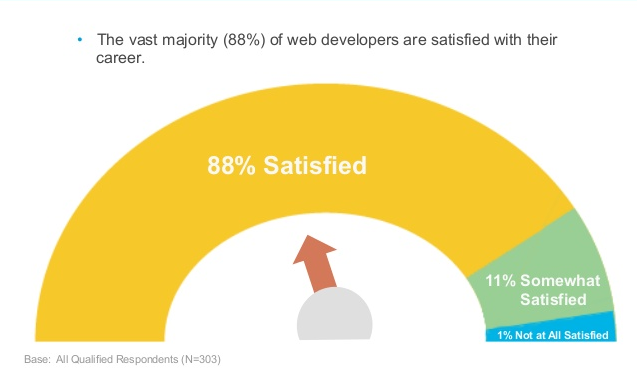Should you become a front-end developer or back-end developer?

Undoubtedly, web development is one of the hottest careers today. According to a survey, the employment of web developers is projected to grow 8 percent from 2019 to 2029, much faster than the average for all occupations.
But web development splits into two specialities; Front-end and Back end. Which one to choose between front-end developer vs back-end developer is challenging. There is simply no one size fits all answer.
However, I would like to give some guidance regarding how to become a front-end developer and offer some of my own thoughts on the topic.
But what do these terms—Front-end and Back-end—actually mean? Let’s clear our concepts first!

What is Front-end?
Front-end is referred to as the presentation of the website and how it interacts with the back-end data. This involves HTML, CSS, Javascript, etc. To put it simply, the front-end manages the parts of websites and applications that users actually see and interact with to perform certain tasks.
Front-end is associated with the style of a website—images, page layouts and menus. In comparing front-end developer vs back-end developer, the front-end uses HTML, CSS, and JavaScript.
HTML is the structural backbone of a site, CSS (Cascading Style Sheets) is the custom skin that defines the style of the visuals, and JavaScript affects how elements on the page move around. So if you were unsure how to become a front-end developer, now you know which languages to master.

What is Back end?
It dictates how programs function by creating hidden processes that run behind the scenes. It also instructs what happens on the server and database.
To better understand front-end developer vs back-end developer roles, think of the front-end as a menu at a restaurant: It allows you to order something from a list of items brought out from another room. And now think of the back end as the kitchen. It acts as a hidden place where the chef is preparing your food.
The programming languages involved in the back-end development are primarily JavaScript, Python, and C#.

So Which One is Right For You?
Okay, now we know what front-end developer vs back-end developer is, but how can you decide which one you want as your career? Honestly, it comes down to your personal preference and why you chose to become a developer in the first place!
But still, let’s assess both of them on a couple of scales.
Salary Comparison
Front-end developer vs back-end developer salaries varies from country to country. According to glassdoor.com, the average front-end developer salary in New York City is $111,728, 20% above the national average. Whereas in London, the average yearly salary for front-end developers is around $52,000, 22% above the national average, according to glassdoor.com.
For the Back end, In New York, an average back end developer can expect to earn around $133,182, which is 17% above the national average. In London, the salary for back end developers jumps up to $74,000, 32% over the national average.
Overall, between front-end developer vs back-end developer, the Back-end developers earn more across the board due to more responsibility, and minor flaws in the coding by a Back end developer can cost the company thousands of dollars.

Job Satisfaction
My advice is; dabble in the front-end and the back-end; that way, you can get a feel for what you enjoy more. You will significantly increase your chances of finding an area you enjoy working in. If you want a career you enjoy, then experience both of these. Only then you can decide between the both.

You Can Always Switch
If you go down one path and decide that it was the wrong one, you can always switch. No matter what you decide to focus on, you should know that nothing is forever.
In the end, it’s all up to you. Choose and learn how to become a front-end developer and back-end developer from some of the best institutes in Pakistan, like Nextbridge Institute.




